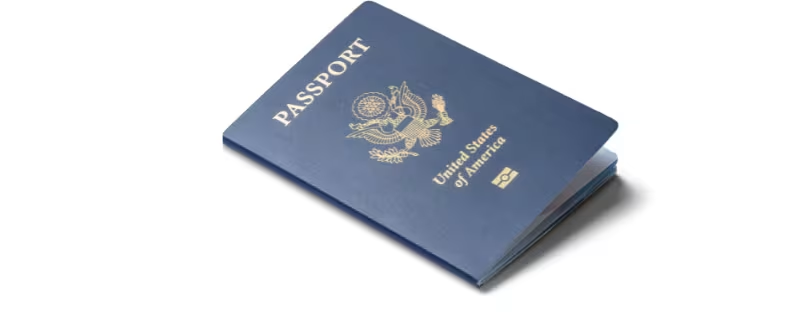
America’s Passport Is No Longer a Global Powerhouse — And That Says a Lot About Today’s World
For the first time in two decades, the United States has slipped out of the world’s top 10 most powerful passports. It’s not just a symbolic fall—it’s a reflection of shifting global influence, changing diplomatic relationships, and a world that’s becoming increasingly selective about who it lets in.
Henley & Partners’ latest Passport Index, published on 14 October, places the US passport in 12th position, tied with Malaysia. American citizens can now enter 180 out of 227 destinations without a prior visa. A solid number on paper—but clearly no longer exceptional.
Meanwhile, Singapore holds the strongest passport in the world with visa-free access to 193 destinations. South Korea follows with 190, and Japan comes in third at 189. These rankings aren’t random; they’re based on hard data from the International Air Transport Association (IATA), evaluating how easily citizens can travel without bureaucratic barriers.
How Did the US Fall from the Top?
A decade ago, the US passport was sitting comfortably at No. 1 (in 2014, to be precise). Since then, it has steadily slipped downward. This latest drop to 12th place is its lowest ranking since the Henley Passport Index was created 20 years ago.
The reason? Reciprocity—or more specifically, the lack of it.
While Americans can enter 180 destinations without a visa, only 46 nationalities are allowed to enter the US visa-free. That makes the US one of the least “open” countries in terms of inbound visa policy and places it 77th in the Henley Openness Index.
Henley & Partners calls this a “fundamental shift in global mobility and soft power.” In simple terms: countries that welcome others are being welcomed back. Countries that don’t… are losing privilege.
A Series of Small Losses with Big Impact
This ranking decline didn’t happen overnight. It’s been years in the making, accelerated by several key access changes:
- In April, Brazil removed visa-free access for Americans due to lack of reciprocity.
- China has expanded its visa-free program—but left the US out.
- Papua New Guinea and Myanmar updated their visa rules, both affecting US travelers.
- Somalia introduced an e-visa system.
- Vietnam expanded visa-free travel — but again, the US was excluded.
Each of these decisions individually seems minor. Together, they chip away at the prestige and practicality of holding a US passport.
Politics, Borders, and a Shift in Attitudes
This drop also shadows a broader political reality. During Donald Trump’s administration, the US significantly tightened immigration policies—from higher visa fees to mandatory in-person interviews and stricter rules for students and skilled workers.
In 2024, the US introduced a $250 processing fee for non-immigrant visas, making it one of the most expensive visa applications in the world.
When a country makes it harder for others to enter, it shouldn’t be surprised when other governments respond in kind. And that’s exactly what’s been happening.
China Moves Up the Passport Ladder
While the US stagnates, China is quietly climbing.
Back in 2015, the Chinese passport ranked 94th. Today, it’s 64th — a jump of 30 places in a decade, with visa-free access increasing from 44 to 81 destinations.
China has also opened its doors to 76 nationalities visa-free — 30 more than the US. Through new agreements with Gulf countries, South America, and parts of Europe, Beijing is clearly using mobility as a diplomatic tool.
Meanwhile, Western nations with historically strong passports — like the US, Canada, Japan, Australia, and New Zealand — are now facing a new reality. They enjoy high outbound freedom but are far more restrictive inbound. And that imbalance is no longer tolerated in a world that values reciprocity.
Is Passport Power Still Just About Travel?
Not anymore. A strong passport today signals trust, diplomacy, trade relationships, and even geopolitical alignment.
Look at Singapore and South Korea — both small nations with major diplomatic networks. Their rise to the top of the index is less about regional power and more about global cooperation. They sign agreements, simplify travel, and maintain balanced foreign policy relations.
By contrast, the US still has influence but is increasingly perceived as inward-looking on mobility issues. Even long-time allies — such as the European Union — have pressured Washington to drop visa requirements for certain member states. And still, nothing has changed.
Conclusion: A Passport Is Now a Mirror of Global Power — and the US Needs to Catch Up
So, what does this really mean?
The US passport is still strong — 180 visa-free destinations is nothing to dismiss. But strength is relative. And right now, others are moving faster.
Countries like Singapore, South Korea, and even the UAE have used mobility as modern diplomacy — negotiating travel agreements, removing entry barriers, and building trust. Meanwhile, the US has treated visa access as a privilege rather than a partnership.
Henley & Partners and IATA data clearly signal a trend: nations that open up are rewarded with influence. Those that don’t are quietly pushed down the list.
If Washington wants to regain its top spot, it’s not just about adding more visa-free destinations for Americans. It’s about allowing more nationalities to visit the US without endless paperwork and $250 fees.
Global mobility in 2025 isn’t just about travel—it’s about reputation, cooperation, and how the world sees you.
And for the first time in 20 years, the world just sent the United States a wake-up call.












